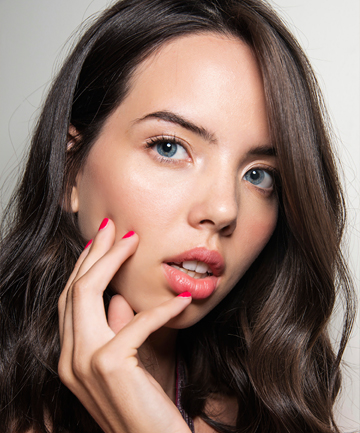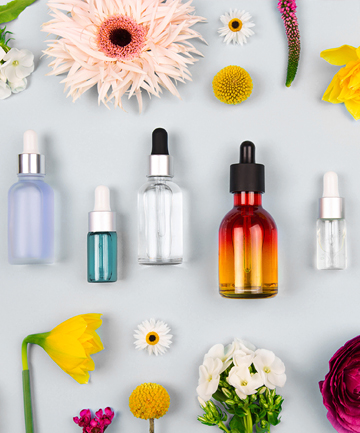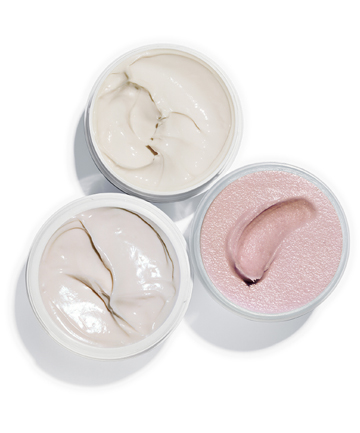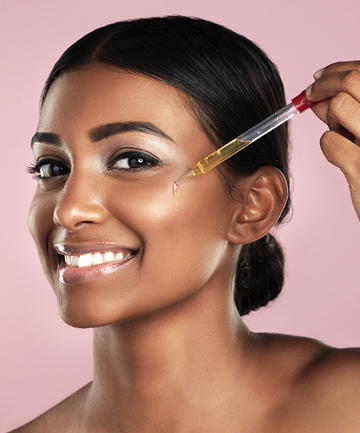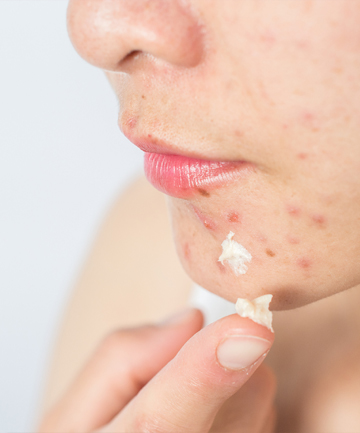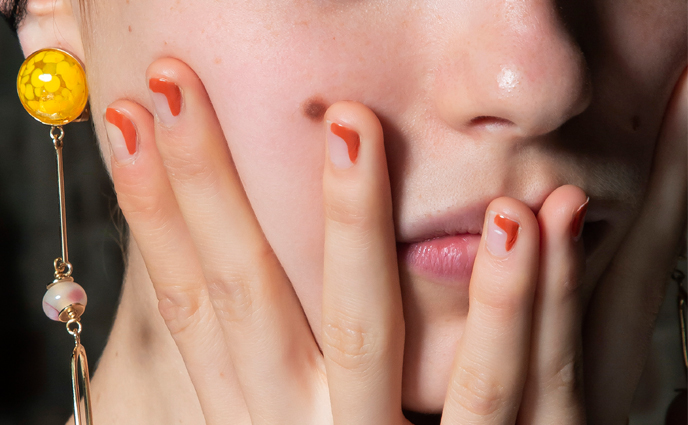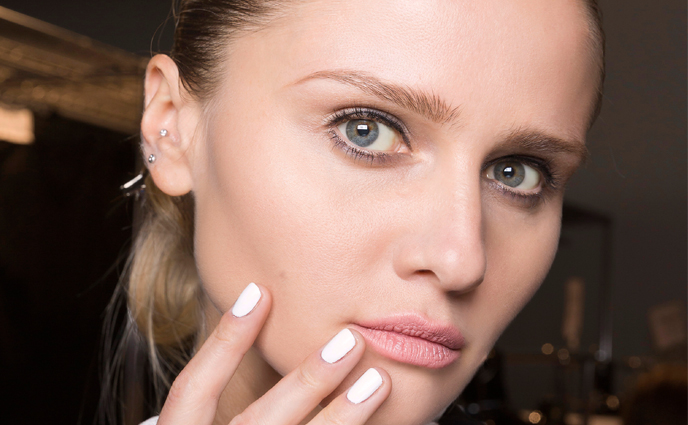When we find a skin care ingredient that works, it's only natural for it to become a cannot-live-without-favorite. The problem is some skin care ingredients actually work best in moderate quantities. Overdoing them — like with a lot of good things in life — can actually result in negative consequences. Read: An irritated, angry complexion. To paraphrase a famous quote, with good ingredients comes the responsibility of using them correctly.
We spoke with skin care experts about common skin care ingredients that are overused. Click through the gallery for all the details.
Image via Imaxtree
Elina Fedotova, cosmetic chemist, celebrity esthetician and owner of Elina Organics Skincare & Spas in Chicago and Kalamazoo, cautions overdoing serums with alpha hydroxy acids. The serums are great for removing layers of excessive dead skin cells, but if AHAs are used every day over-exfoliation can occur, resulting in irritation. Additionally, improper use can make skin vulnerable to sun exposure.
Leslie Kritzer, esthetician and founder of Skin Worship, also cautions being mindful of AHAs (e.g. glycolic acid, lactic acid, mandelic acid) in all of your skin care products. They can appear in everything from cleansers to toners to facial pads.
Fedotova recommends using alpha hydroxy acids moderately. "I would not suggest using it more than a couple times a week for people with sensitive and dry complexions," she says. "People with acne-prone and oily, acne-prone skin can do it more often but I would suggest talking with their skin care professional or dermatologist for advice."
Those who live in sunny climates and nearer to the equator (lucky them) may have to limit their usage. And always use sunscreen. Fedotova suggests the one with zinc oxide.
Analyze skin regularly. If it is red and/or irritated, stop using AHA products immediately — or any other potent product.
Image via Anna Efetova/Moment/Getty
Clays, such as kaolin clay, bentonite clay, rhassoul clay and trendy Australian pink clay, can be overdone. Clays are typically found in masks and the instructions suggest using the treatments a couple of times a week. As great as clay is for deep cleaning and removing stubborn dirt and impurities, it can also dry out skin with overuse.
Resist the urge to use clay masks and treatments too frequently — even if you see results. Follow the recommended time and application usage. Even those with oily and acne-prone skin can start to experience dryness and irritation from overusing clay skin care products.
Image via PLANVIEW/E+/Getty
Like alpha hydroxy acids, retinol is another potent ingredient that can do wonders to complexions, but it should be used sparingly, especially if you're new to the retinol game. Redness, irritation, itchiness and flakiness are some of the potential side effects, according to Kritzer.
"Overuse of retinol can encourage cell turnover too much and can make under-developed skin cells come to the surface which can weaken your skin's protective barrier function," says Fedotova. "In my formulations, I prefer to use sea buckthorn and rose hips extract because they contain natural forms of precursor of vitamin A (retinol) along with vitamins B and C and other anti-aging skin nutrients which will work harmoniously with the skin and will never lead to over-exfoliation or other undesirable side effects."
If you opt for retinol rather than an alternative, note that it takes time to build up a tolerance to retinol. Do not rush into it and do not be overzealous with your application. And always remember sun protection. Kritzer suggests starting out using retinol two times per week and building up to three to four times per week, as tolerated.
Image via PeopleImages/E+/Getty
Beta hydroxy acids, such as salicylic acid, can be helpful for melasma and decreasing surface oils. This makes BHAs great for acne-prone skin. But, do not get greedy with them. Don't use BHAs more than a few times per week, according to Kritzer. And steer clear of using multiple skin care products that contain acids. "Overuse will strip your skin causing the sebaceous glands to overproduce oil and you are back to square one, except now your skin's barrier is weakened," says Kritzer. "Being chill and not reactive to breakouts and rashes is very important!" She continues that leaving skin alone for a few days will usually result in it repairing itself. If not, then it's time to call an expert.
Image via Boy_Anupong/Moment/Getty


